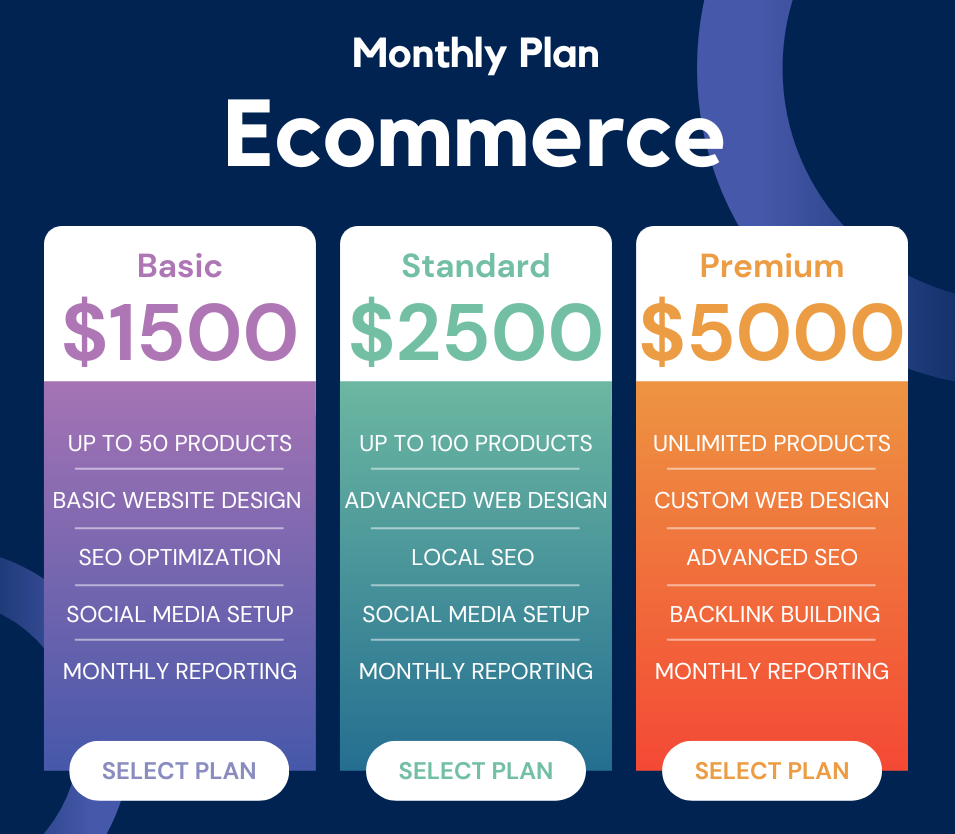Service
What is an Ecommerce Website?
An ecommerce website is a website that enables businesses and individuals to buy and sell products and services online. Ecommerce websites are typically equipped with features and functionalities that allow users to search for and purchase items, track orders, and manage customer accounts. Some of the most popular ecommerce platforms include Shopify, Magento, and WooCommerce. While there are many benefits to setting up an ecommerce website, some of the key advantages include increased reach, convenience, and efficiency.
What is Ecommerce all about
In recent years, ecommerce has become a major force in the global economy. With more and more businesses turning to online platforms for their sales and marketing, it’s important to understand just what ecommerce is all about. Ecommerce is essentially the buying and selling of goods or services online. It involves everything from setting up an online store, to managing customer interactions and transactions, to shipping products. In this blog post, we’ll take a look at what ecommerce is all about and how it can help you succeed in business.
What is Ecommerce?
Ecommerce is the buying and selling of goods and services online. It encompasses a wide range of activities, from online shopping and auction sites to business-to-business (B2B) exchanges and beyond.
Ecommerce has been around for quite some time, but it has only recently exploded in popularity. This is due in large part to the widespread adoption of mobile devices and high-speed internet access. Today, more people than ever before are using their smartphones and tablets to shop online, book travel plans, and even manage their finances.
The ecommerce industry is expected to continue growing at a rapid pace in the coming years. This growth will be driven by continued innovation in technology, as well as by the increasing global population of internet users.
The different types of Ecommerce
There are four main types of ecommerce: business to business (B2B), business to consumer (B2C), consumer to consumer (C2C), and consumer to business (C2B).
B2B ecommerce is when businesses sell products or services to other businesses. An example of this would be a company that sells office supplies to another company.
B2C ecommerce is when businesses sell products or services to consumers. An example of this would be a company that sells clothes online.
C2C ecommerce is when consumers sell products or services to other consumers. An example of this would be someone selling their used car on Craigslist.
C2B ecommerce is when consumers sell products or services to businesses. An example of this would be a freelance writer who sells their articles to magazines or websites.
The benefits of Ecommerce
There are many benefits to ecommerce, including the following:
1. Reach a global audience – With an online store, you can reach customers all over the world, which is not possible with a brick-and-mortar store.
2. No need for physical space – An online store requires no physical space, so you can save on rental and other associated costs.
3. Open 24/7 – Your online store never closes, so you can make sales around the clock.
4. Automated processes – Many ecommerce platforms offer automated features, such as automatic shipping and inventory management, which can save you time and money.
5. Increased ROI – With a well-designed ecommerce website, you can expect to see a higher return on investment than with a traditional brick-and-mortar store
The disadvantages of Ecommerce
There are a few disadvantages of ecommerce to be aware of, before getting started in online sales. These include:
1. The potential for lower profit margins – When selling through an online marketplace like Amazon, you’ll have to compete with other sellers offering similar products. This can drive down prices and make it harder to turn a profit.
2. Increased competition – In addition to the general competitive pressure from other businesses, online marketplaces also attract a lot of price-sensitive shoppers who are always looking for the best deal. This can make it difficult to stand out from the crowd and generate sales.
3. Shipping and fulfillment challenges – Depending on the products you sell, shipping can be a significant cost and logistical challenge when selling online. You’ll need to factor in these costs when pricing your products and decide whether to offer free shipping or pass the charges on to your customers.
4. Payment processing fees – Most payment processors charge a fee for each transaction, which can eat into your profits if you’re not careful. Be sure to compare different processors and choose one with low fees that fits your business model.
5. Returns and customer service issues – Dealing with returns and unhappy customers is always a challenge, but it can be especially difficult when you’re not dealing with them face-to-face. Make sure you have a clear returns policy in place so customers know what to expect, and try to provide excellent
How to start an Ecommerce business
Starting an ecommerce business is a great way to enter the world of online business. There are many different ways to get started, and the most important part is finding a niche that you can focus on. Once you have found a niche, there are a few key things you need to do in order to get started:
1. Find a good platform: A good ecommerce platform will make it easy for you to set up your store and start selling. It should have all the features you need, including payment processing, shipping, and inventory management.
2. Choose your products: Your products should be unique and appealing to your target market. Make sure you have a good mix of products so that your store has something for everyone.
3. Promote your store: Once your store is up and running, you need to start promoting it. Use social media, email marketing, and other marketing channels to reach potential customers.
Conclusion
Ecommerce is a powerful tool for businesses and consumers alike. It allows businesses to expand their markets and reach more customers, while providing customers with greater convenience, better prices, and the ability to shop from anywhere in the world. With so many advantages that come with ecommerce platforms, it’s no wonder why they are becoming increasingly popular among both buyers and sellers. Whether you’re an entrepreneur or just a regular customer looking for great deals online, ecommerce has something to offer everyone.

